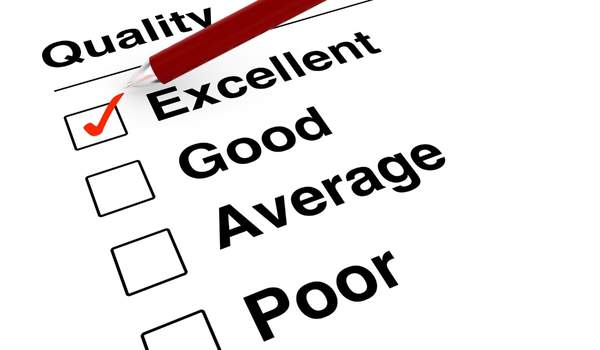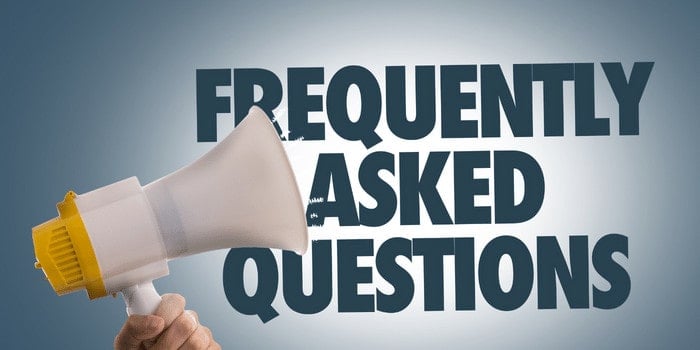
Water filters don’t go bad like old milk in the fridge, but that doesn’t mean they last forever. Whether you’ve got an unopened filter sitting in storage or one that’s been chugging along in your kitchen, there is a point where its performance starts to slide.
In this guide, we’ll unpack what “expiration” really means when it comes to filters, how long different types tend to last, and how to spot the signs that it’s time to swap yours out.
💡 Quick Takeaways
- 🧊 Unused filters don’t expire — if stored properly, they can last indefinitely.
- ⏳ Used filters do wear out, and most should be replaced every 2–6 months (depending on use and type).
- 📅 Seven years is the unofficial cutoff for stored filters — if it’s been that long, don’t risk it.
- ⚠️ A drop in water pressure or bad taste is a clear sign your filter has had enough.
- 🧼 Mold or bacteria can build up in filters that sat wet for too long — toss them if they’ve been idle.
🧪 Use Life vs. Shelf Life — What’s the Difference?

When it comes to water filters, “shelf life” and “use life” aren’t the same thing — and that can trip people up.
- 🗓️ Shelf life refers to how long a dry, unused filter can sit in storage without losing performance.
- 💧 Use life kicks in once a filter gets wet — that’s when the countdown really begins.
Good to know:
As long as an unused filter stays dry and is stored somewhere cool and clean, it can technically last for years. But once moisture hits the media, bacteria can follow — and that’s when the real expiration risk begins.
🗃️ Do Unused Filters Expire?
Not really — but that doesn’t mean they last forever.
If a filter has never been used and is stored in a dry, sealed, and stable environment, it can last for years — even beyond the “best by” date on the box. That vintage Brita filter in your grandma’s pantry? Probably still good.
BUT… once it’s exposed to moisture or humidity, the game changes. Even without being installed, damp filter media can grow mold or bacteria — especially in warm, dark storage.
🧠 Pro tip: If you’re buying in bulk, stash extra filters in a sealed plastic bag, away from heat and humidity. A closet or cabinet in the main part of your home (not the garage) is ideal.
💧 How Long Are Water Filters Good For?
Once a filter gets wet, the countdown begins. Manufacturers estimate lifespan based on gallons processed or time in service — but real-world results depend on usage and water quality. Here’s a breakdown of common filter types and how long they typically last:
| Filter Type | Typical Lifespan |
|---|---|
| Sediment Filters 🧱 | 3–6 months (standard) Up to 12 months (jumbo) |
| Carbon Filters 🧲 | 2–3 months (pitchers) Up to 12 months (whole house) |
| Reverse Osmosis Membranes 💧 | 2–5 years |
| Ion Exchange Resin ⚡ | 5–15 years (with regeneration) |
| Ceramic Filters 🥾 | 5–10 years (with cleaning) |
| Gravity Filters 🌍 | 4–6 months (cartridges) |
| UV Bulbs 🔆 | 12 months (even if still glowing) |
✅ Pro Tip: Don’t assume your filter’s “doing fine” just because your water tastes okay. Some contaminants (like lead or bacteria) are flavorless and odorless — always follow manufacturer guidelines or swap in sooner if your usage is high.
⏳ What Affects a Water Filter’s Lifespan?

Water filters don’t wear a timer on their sleeves — how long they last depends on a mix of conditions in your home and how much demand you put on them. Here’s what plays a role:
- 📏 Filter Size: Larger cartridges hold more filtration media, meaning they can last longer. Jumbo-size sediment filters, for instance, can go twice as long as standard ones.
- ⚙️ Media Quality: Not all carbon or resin is created equal. Coconut shell carbon, for example, has a finer structure than coal-based carbon — so it filters more effectively and lasts longer.
- 🔄 Filter Design: Multi-stage systems share the workload. If your RO system has high-quality sediment and carbon pre-filters, the membrane won’t have to work as hard — and that means fewer replacements.
- 🚿 Water Quality: Dirtier water clogs filters faster. High levels of rust, sediment, or even harmless minerals like calcium will shorten a filter’s useful life.
- 🏠 Water Usage: The more gallons you push through, the faster your filter runs out of steam. A family of five will wear out a filter long before a single person will.
- 💤 Inactivity: Filters that sit unused but wet can develop mold or bacterial buildup. If your vacation cabin’s filter hasn’t been touched in months — toss it.
🧠 Good to know: Even a high-end water filter can’t beat biology — wet filters that sit stagnant are breeding grounds for microbes. If it’s been out of use for a while, it’s better to replace than risk it.
🚨 Signs Your Water Filter Isn’t Doing Its Job

Water filters don’t come with sirens, but they do give you clues when they’ve called it quits — unless you’re dealing with contaminants like PFAS that can slip through expired filters, even without obvious taste, smell, or cloudiness.
That’s why it’s smart to replace filters on schedule or test your water if you’re filtering for more than just aesthetics.
Keep an eye (and nose) out for these telltale signs:
- 🧪 Water tastes or smells off If your filtered water suddenly tastes like a swimming pool or smells metallic, chances are your filter’s no longer catching what it’s supposed to. A funky flavor is often the first red flag.
- 📉 Lower water pressure A clogged filter chokes the flow — and you’ll notice it. If your once-strong stream has turned into a trickle, it might be time to swap in a fresh cartridge.
- 🌊 Murky or cloudy water If your water’s looking a bit hazy, your filter’s likely overloaded with sediment or minerals. Don’t wait for the floaties.
- 📆 You’re past the recommended lifespan Even if things seem fine, expired filters can become ineffective — or worse, a home for bacteria. Keep a maintenance calendar or set reminders to replace on time.
💡 Pro Tip: If your shower pressure dropped or your filtered water tastes like the tap again, that’s your filter waving a white flag. Change it before it compromises your water — or your plumbing.
🧠 FAQ’s

❓ Is It Safe to Drink Water from a Spent Filter?
Not really. Once a filter reaches its limit, it’s no longer doing its job — and in some cases, it can even make things worse. If your water contains harmful contaminants like lead or bacteria, they’ll pass right through a used-up filter like it’s not even there.
📌 Good to know: A filter that’s been wet and sitting unused can harbor mold or bacteria. If your vacation cabin filter’s been idle for months? Just replace it.
❓ Can You Rely on Filter Change Indicators?
Sort of. Most indicators are just timers — helpful, but not always accurate. They don’t track how much water you’ve actually used or what’s in it.
💡 Pro Tip: If your filter doesn’t have a pressure gauge or real-time monitor, set a reminder to swap cartridges based on average use — or follow your manufacturer’s gallon rating if it’s available.
💬 Final Thoughts
Water filters don’t come with an exact expiration date — but that doesn’t mean they last forever. Their lifespan depends on your water quality, usage habits, and maintenance.
💧 Whether you’re using a Brita pitcher, a whole-house system, or a reverse osmosis unit, timely filter changes make all the difference. Stick to the manufacturer’s schedule, watch for signs of wear, and never assume “clear” means “clean.”
Because when it comes to safe, great-tasting water — your filter should be working just as hard as you are.
 100 people found this helpful. Was this guide helpful to you?
100 people found this helpful. Was this guide helpful to you? 

